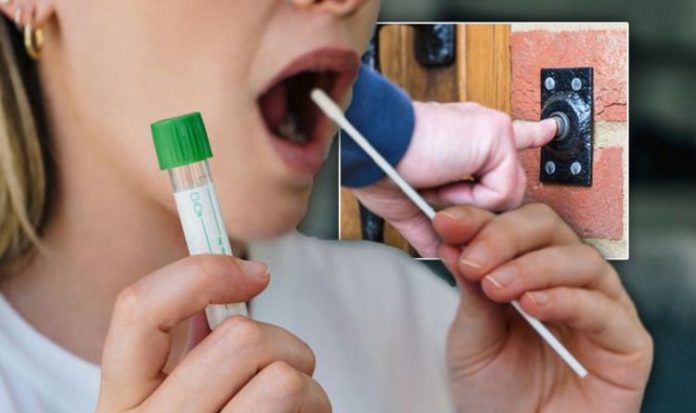Covid variants have developed over the past few months, with experts concerned that some mutations have made the coronavirus more transmissible. After the South African variant was spotted in the UK, the Government launched doorstep testing to try and find as many cases as possible. The search area has now been extended, as more cases come to light.
Coronavirus has killed more than 100,000 people in the UK, with the total number of deaths still rising.
While new daily Covid cases has started to decline, the number is still staggeringly high.
The Government launched surge testing to try and stop the South African variant in its tracks, after it was first spotted in the UK.
Now the search area has increased to areas surrounding Manchester, and residents have been advised to get tested straight away.
READ MORE: South Africa Covid variant: Worcestershire panic as virus spreads
The new targeted areas around Manchester include postcodes M14 4, M14 7, M15 5, M15 6, and M16 7.
After surge testing was introduced last month, Health Secretary Matt Hancock said: “It is vital that we do all we can to stop transmission of this variant and I strongly urge everyone in these areas to get tested, whether you have symptoms or not.
“The UK is a global leader in COVID-19 genomics, and because of this, we have been able to identify new strains of the virus and take decisive action.
“We continue to closely monitor new variants, here and around the world, and in addition to our already extensive testing service, we are making surge testing capacity available to affected areas.”
If you develop any of the three key signs of coronavirus, you should self-isolate and get tested straight away.
Anybody with a high fever, a dry cough, or a loss of smell or taste could have Covid.
If your test comes back negative, you can return to normal lockdown life.
But, if you test positive for Covid, you should self-isolate for at least another 10 days.







